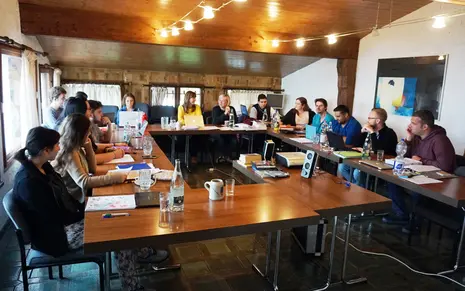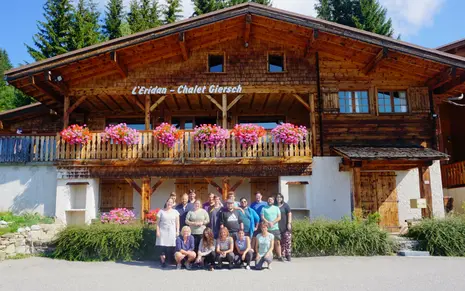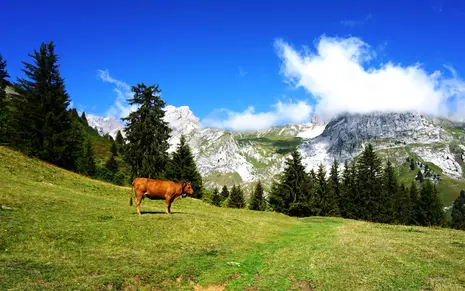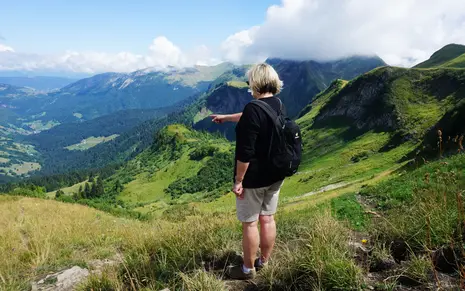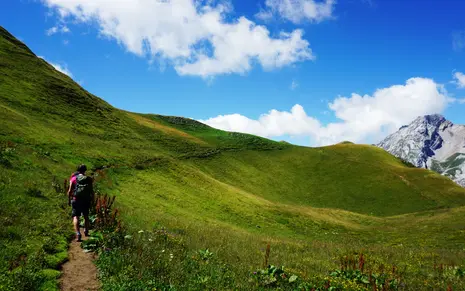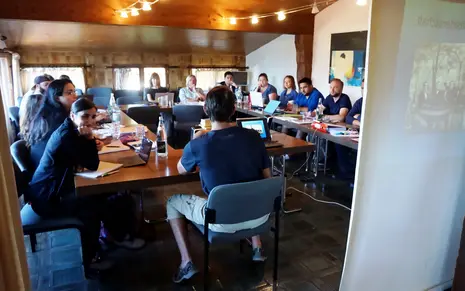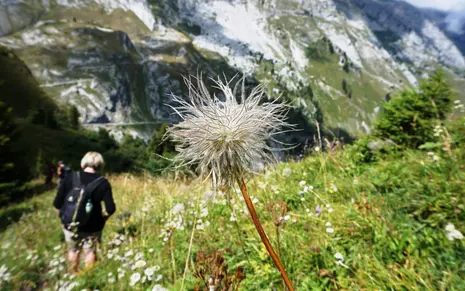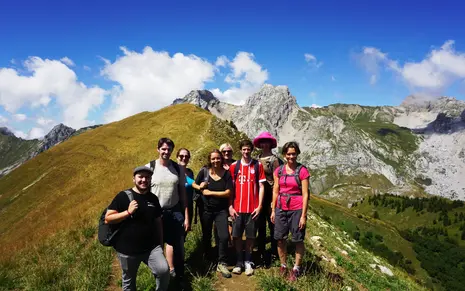The American Presidency: History, Literature, Culture
Text by Johanna Preisendörfer. Photos by Judith Rauscher.
From 12-19 August 2018, a group of History and American Studies students got together in the remote village of Manigod in the French Alps to participate in the interdisciplinary seminar “The American Presidency: History, Literature, Culture” led by Prof. Christine Gerhardt (Amerikanistik) and Prof. Sabine Freitag (Neuere und Neueste Geschichte).
“Anyone who is capable of getting themselves made President should on no account be allowed to do the job.” (Douglas Adams, The Hitchhiker’s Guide to the Galaxy)
Not a day goes by, it seems, without reports about yet another scandal involving the residing American President Donald J. Trump and his associates. Despite or maybe because of the controversies surrounding the American presidency, it is an institution that exerts considerable influence and generates enormous interest globally. Our interdisciplinary seminar gave us the opportunity to analyze the evolution of the American presidency over more than 250 years, combining historical, cultural, and literary perspectives.
“Whatever the verdict on my presidency, I’m comfortable with the fact that I won’t be around to hear it. That’s a decision point only history will reach.” (George W. Bush, Decision Points)
The beautiful Chalet Giersch was a perfect seminar location. Its breathtaking panoramic view of the mountains provided a regenerative environment for interdisciplinary discussions about the lives and legacies, politics and cultural representations of George Washington, Abraham Lincoln, Theodore Roosevelt, John F. Kennedy, George W. Bush, and Barack Obama.
“It’s not doing what is right that’s hard for a President. It’s knowing what is right.” (Lyndon B. Johnson)
In addition to intensive debates about presidential portrayals in historical documents, novels, poems, movies, autobiographies, essays, and TV shows, a recurring topic was the role of the First Lady – an institution often unjustly dismissed as being of little historical and political consequence. However, many First Ladies, especially Eleanor Roosevelt and Hillary Clinton, acted more like co-presidents than simply as wives to the president, and others, for example Lady Bird Johnson and Michelle Obama, used their position to initiate countless social and cultural programs.
“I have had to learn that my voice has value. And if I don’t use it, what is the point of being in the room?” (Michelle Obama)
After the daily seminars, and hiking in the Alps and relaxing by the pool in the afternoons, we spent most evenings watching movies about the American Presidency and having conversations on the balcony. Repeatedly, discussions returned to the presidencies of Barack Obama and Donald Trump, and to the political as well as cultural changes associated with them. Encouraged to examine the role of the American President from different perspectives in the interdisciplinary seminar, it became clear to us that it is important to consider both historical contexts and cultural dimensions when trying to understand past and current political events. Whether in the United States, Germany, or elsewhere, politics are always about much more than just politics.
“Change will not come if we wait for some other person, or if we wait for some other time. We are the ones we’ve been waiting for. We are the change that we seek.” (Barack Obama)

